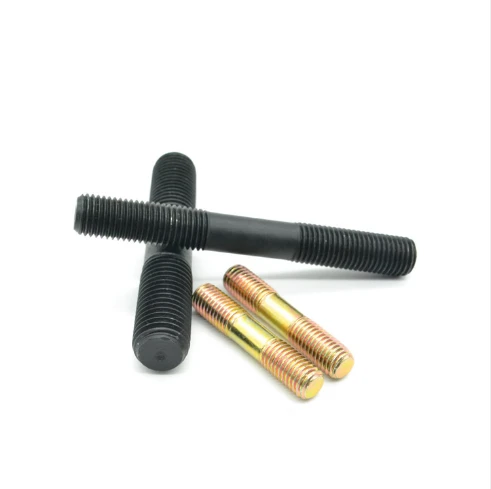Reliable Supplier of Self-Locking Bolts for Secure Fastening Solutions
Nov . 26, 2024 07:47 Back to list
Reliable Supplier of Self-Locking Bolts for Secure Fastening Solutions
The Importance of Self-Locking Bolts A Guide for Buyers and Suppliers
In the evolving landscape of manufacturing and construction, the demand for robust fastening solutions has never been more critical. Among these, self-locking bolts have emerged as essential components, offering enhanced security and reliability. With their ability to resist loosening under dynamic loads and environmental conditions, self-locking bolts are favored in a variety of applications ranging from automotive to aerospace, and construction to electronics. As such, understanding the benefits and supply chain dynamics of self-locking bolts is vital for manufacturers and procurement professionals alike.
What Are Self-Locking Bolts?
Self-locking bolts are screws designed with a mechanism that prevents them from loosening due to vibrations, shock, or thermal fluctuations. This feature is achieved through several means, including thread design, locking devices, or the material composition of the bolt itself. These fasteners help to maintain the integrity of structures and machinery, significantly reducing the risk of failure that can arise from loose connections.
Advantages of Self-Locking Bolts
One of the primary advantages of self-locking bolts is their effectiveness in reducing maintenance costs. In applications where regular inspections and adjustments are impractical, these bolts offer a reliable solution that minimizes the need for frequent retightening. This results in lowered labor costs and enhances operational efficiency.
Additionally, self-locking bolts provide enhanced safety. In critical applications, such as in the aerospace industry where the stakes are extraordinarily high, ensuring that all components remain securely fastened is paramount. The use of self-locking technology reduces the risk of mechanical failure that could lead to catastrophic results.
Moreover, self-locking bolts are designed to withstand harsh environmental conditions. Whether exposed to extreme temperatures, humidity, or corrosive chemicals, these fasteners are engineered to maintain their locking capabilities, ensuring longevity and reliability in a variety of settings.
Sourcing Self-Locking Bolts
self locking bolts supplier

For manufacturers seeking self-locking bolts, the market offers a diverse range of suppliers, each providing unique strengths and specializations. When selecting a supplier, it is crucial to consider several factors
1. Quality and Standards Look for suppliers that offer bolts made from high-grade materials and adhere to industry standards such as ISO and ASTM. Quality assurance certifications can also provide peace of mind.
2. Customization Depending on your specific needs, you may require custom self-locking bolts. Choose a supplier capable of producing tailored solutions that align with your specifications.
3. Supply Chain Reliability Timely delivery is essential in production environments. Assess the supplier's ability to meet deadlines and their overall reliability in fulfilling orders.
4. Technical Expertise A good supplier should not only sell products but also provide technical support. They should be knowledgeable about self-locking mechanisms and able to assist in selecting the right bolts for your applications.
5. Cost While cost is an important factor, it shouldn’t be the only consideration. It’s essential to evaluate the balance between price and quality. A lower-priced option may save money upfront but could lead to increased costs in the long run due to failures or replacements.
Conclusion
As industries continue to prioritize safety and efficiency, the significance of self-locking bolts cannot be overstated. Their ability to provide secure fastening solutions makes them vital in many applications. For businesses looking to source self-locking bolts, it’s essential to choose a reliable supplier whose products meet quality standards and can deliver customized solutions. By investing in high-quality self-locking bolts, manufacturers can mitigate risks, reduce maintenance costs, and enhance the overall performance of their products. Ultimately, the right self-locking bolts can lead to greater operational efficiency and safety in a highly competitive market.
Latest news
-
High-Quality Panel Stud Bolt Reliable Panel Stud Bolt Factory & Suppliers
NewsJul.08,2025
-
High-Precision Fine Thread Locknuts Manufacturer & Supplier Custom Solutions
NewsJul.08,2025
-
PH Imperial Stud Bolt – High Strength Fasteners from Leading Supplier & Factory
NewsJul.07,2025
-
High-Quality Allen Wrench Bolts Leading Factory, Company & Suppliers
NewsJul.07,2025
-
Wholesale Ball Stud Bolt - High Quality Supplier & Factory Price Reliable Wholesale Ball Stud Bolt Company
NewsJul.06,2025
-
High-Strength Alloy Bolts Manufacturer & Supplier Quality Alloy Fasteners Factory
NewsJul.06,2025
